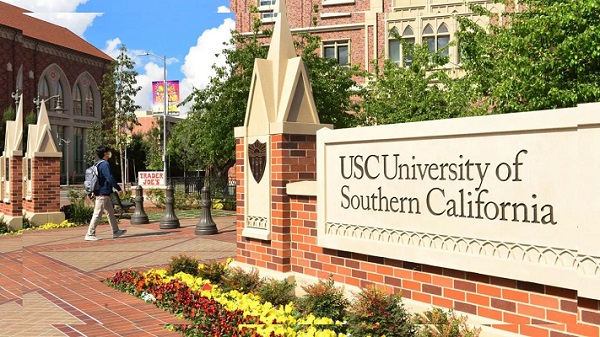Do you know about the C.W Park USC Lawsuit? In the vast landscape of legal battles, the C.W. Park USC Lawsuit stands as a significant testament to the complexities of justice, education, and ethics. In this article, we will embark on a journey to unravel the intricate layers of this lawsuit. From the key players involved to the legal intricacies, and the far-reaching implications, we will dissect this case with precision and clarity.
Exploring the Key Details
The Plaintiff: C.W. Park
At the heart of this lawsuit is C.W. Park, a name that has become synonymous with resilience and determination. As the plaintiff, Park has taken a bold step into the legal arena, seeking justice and accountability.
USC: The Defendant
On the opposing side of the courtroom stands the University of Southern California (USC), a revered institution of learning now faced with legal scrutiny. USC, as the defendant, must defend its actions and decisions in the face of serious allegations.
The Allegations
The crux of this legal battle lies in the allegations put forth by C.W. Park. While the specifics might vary, the essence revolves around issues that have far-reaching consequences. From Title IX compliance to matters of campus safety, these allegations strike at the core of ethical conduct within educational institutions.
Legal Process
Navigating the legal system is often akin to traversing a labyrinth. Understanding the various stages, from filing the lawsuit to court proceedings, is essential to comprehend the gravity of the situation. Legal jargon and procedures, while daunting, play a pivotal role in shaping the outcome of this case.
Implications and Impact
Academic and Ethical Ramifications
Beyond the confines of the courtroom, the C.W. Park USC Lawsuit has sent shockwaves through the academic community. Questions about ethics, morality, and the responsibilities of educational institutions have been brought to the forefront. How universities handle such cases significantly influences the future of education.
Public Perception
In the age of information, public perception can sway opinions and decisions. The way this lawsuit is perceived by the public, including students, parents, and society at large, can influence the discourse surrounding issues of sexual harassment and the rights of students. Also Visit Is Kisskh.me Down or Not Working?
C.W. Park USC Lawsuit: In the Spotlight

Media Coverage
The C.W. Park USC Lawsuit has captivated the attention of the media, which plays a vital role in shaping public opinion and disseminating information. The coverage of this lawsuit has highlighted the complex web of issues surrounding it, shedding light on how journalism impacts high-profile legal battles.
The media’s scrutiny and investigative reporting have been instrumental in bringing the case to the public’s attention, helping to reveal the nuances of the situation and the various parties involved. As the case unfolds, media outlets are crucial in providing continuous updates and analysis, ensuring that the public remains informed.
Legal Experts Weigh In
The legal intricacies of the C.W. Park USC Lawsuit are intricate and multifaceted. Legal experts, with their extensive knowledge and experience, have been offering valuable insights. Their involvement provides context and helps clarify complex legal details, making the case more comprehensible for the general audience.
Legal experts’ analyses and opinions not only serve to educate the public but can also influence the legal proceedings themselves. Their input can guide the direction of the case, offering a valuable perspective on the potential outcomes and implications.
Must Visit: What is RusticoTV?
Title IX Compliance and Implications
Understanding the C.W. Park USC Lawsuit requires familiarity with Title IX, a federal law enacted in 1972 to ensure gender equality in educational settings. Title IX’s significance is not only historical but also foundational to the case.
Allegations have emerged suggesting that USC may have violated Title IX in several ways, including unequal treatment, indifference toward reported incidents, and inadequate support for survivors. Such allegations raise questions about the university’s compliance with this critical law.
If USC is found guilty of Title IX violations, the potential consequences are significant. These consequences could range from losing federal funding to severe damage to the university’s reputation. The outcome of this case holds the potential to set a precedent for future Title IX cases in educational institutions.
To provide context and a broader perspective, it’s essential to examine recent cases and precedents involving Title IX violations in higher education. These examples offer valuable insights into the potential outcomes of the C.W. Park USC Lawsuit.
Campus Safety and Culture
The C.W Park USC Lawsuit also serves as a mirror reflecting the state of campus safety and culture at USC. Understanding the broader context is essential to assess the impact of the lawsuit.
The prevailing campus culture is critical in this context, particularly in terms of whether it’s perceived as safe and respectful, especially regarding issues of sexual harassment and assault. The lawsuit has raised questions about the university’s commitment to creating a safe and inclusive campus environment.
Furthermore, the lawsuit’s impact on students cannot be underestimated. For those who have experienced sexual assault or harassment, the emotional and mental toll can be significant. The case has not only drawn attention to past incidents but also highlighted the importance of support mechanisms and resources available to survivors.
To foster a culture of safety and support, USC may consider implementing awareness campaigns, workshops, and collaborating with student organizations that promote a safe and respectful campus environment.
You May Want to Read: Discover ilikecomox: Your Ultimate Search Companion
Transparency and Accountability in Handling Cases
The C.W. Park USC Lawsuit has prompted a critical examination of USC’s approach to handling sexual assault allegations. Transparency and accountability are crucial elements of this assessment.
The handling of allegations is a pivotal aspect. USC’s specific actions in response to the allegations, such as promptly initiating investigations and maintaining transparency, are under scrutiny. Accountability at this stage is paramount.
The disciplinary process is another area of focus. This includes the sanctions imposed on the accused and the rights and support offered to both parties involved. Ensuring a fair and equitable process is essential in building trust and confidence.
Additionally, there is a growing emphasis on adopting a victim-centric approach. This approach prioritizes emotional support, emphasizes the importance of survivors being heard and believed, and focuses on their well-being.
To enhance transparency and accountability, USC may consider practical measures, such as establishing an independent body to oversee such cases or conducting regular audits of their procedures. These steps can help ensure that the university is taking meaningful action to address issues raised by the C.W. Park USC Lawsuit and to create a safer campus environment for all students.
Conclusion
In summary, the C.W Park USC Lawsuit is a complex legal battle with far-reaching consequences. Title IX compliance, campus safety, and transparency in handling sexual assault cases are critical areas that USC needs to address. To navigate this challenging terrain successfully, USC should take proactive steps towards reform, ensuring a safer and more supportive environment for all its students.
For further insights and details, you can explore the following external links:
- Title IX at USC: USC’s official page on Title IX and its commitment to compliance.
- National Women’s Law Center – Title IX: An in-depth resource on Title IX and its implications.
FAQs About C.W Park USC Lawsuit:
Q1. What is Title IX? A1. Title IX is a federal law that prohibits gender-based discrimination in educational institutions that receive federal funding. It covers various aspects of education, including admissions, athletics, and sexual harassment.
Q2. What could happen to USC if found guilty of Title IX violations? A2. USC may face severe consequences, including the loss of federal funding and significant damage to its reputation. Legal and financial penalties could also apply.
Q3. How can USC improve campus safety and culture in light of the lawsuit? A3. USC can improve campus safety by implementing awareness campaigns, providing support for survivors, and fostering a culture of respect and accountability.
Q4. What is a victim-centric approach in handling sexual assault cases? A4. A victim-centric approach prioritizes the emotional well-being and support of survivors. It involves believing and empowering survivors and ensuring their needs are met throughout the process.
Q5. Are there other universities that have faced similar lawsuits? A5. Yes, there have been numerous cases of universities facing lawsuits related to sexual assault and Title IX violations. These cases often lead to significant legal and reputational consequences.


